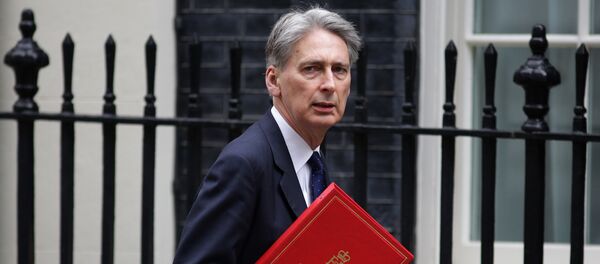Jolyon Maugham QC, a British tax lawyer, is intending to raise the issue of Article 50 reversibility and the UK’s post-Brexit relations with the European Economic Area (EEA) in the Irish High Court, thus effectively halting the Brexit process for an indefinite period of time. Maugham has started a crowdfunding campaign to finance his lawsuit, claiming the initiative will benefit both the supporters and the opponents of Brexit through raising awareness and providing information on the technical process which is still shrouded in mystery.
“More than six months on, we still understand little about what leaving the European Union means. Or who is to decide? And on what authority?” Maugham asks.
In his opinion, the lawsuit would inevitably result in substantial clarifications of the Article 50, under which an EU member state can leave. Such a clarification would come in handy before the Brexit process commences full-force, Maugham claims, as Brexit is an unprecedented and challenging development.
Yet, some see his effort as an awkward attempt to challenge the decision of the June 23 referendum.
Maugham advocates that Britain, after having exited from the EU, remained in the EEA, which he sees as economically and politically beneficial.
“If we were to leave the EU but to remain in the EEA, then almost all of the problems that Brexit causes the Irish State and the Irish people disappear,” Maugham said.
He, along with his colleagues Simon McGarr from Dublin and Joseph Dalby SC are intending to claim in court that the Irish government, the European Commission, and the European Council have violated EU law regarding Article 50. For instance, since the Brexit process has not yet formally begun, the EU’s decision to exclude the UK representatives from certain meetings of the EU leadership is illegal.
However, the proposed lawsuit will also allege that the Article 50 has already been triggered when the UK’s Prime Minister Theresa May notified the European Council that Britain will exit. Again, the EU might have breached Article 50 by declining to commence talks with the UK about the process of separation.
“If you're a Leaver who wants to get on with it, establishing that Article 50 is irrevocable will put all talk of a second referendum to bed,” Maugham said, in an attempt to cater to the pro-Brexit camp. Indeed, a reversible Article 50 might entail another referendum, considering the Scottish and Northern Irish reluctance to Brexit, along with the very pro-EU attitudes in London.
Meanwhile, the main UK’s political parties, including the Labour, Tory and the LibDems, have all agreed this week that once the UK starts its official Article 50 process, it cannot be reversed.
“A member state has a right to withdraw from the Union and to provide a procedure that leads preferably to a negotiated outcome. However, this exit-friendly intention is combined with a more exit-hostile procedure,” Prof. Stijn Smismans of Cardiff University said.
“There is no unilateral way back once the issue has been put on the European negotiation table. At the same time, it would be entirely against the spirit of the treaties and of article 50 if the EU could not stop the withdrawing process if the outgoing state has changed its mind and wants to remain.”
Given the case for Brexit is motivated by the high-priority political and economic considerations in the UK, it is hardly imaginable the process could grind to a halt. Yet, Maugham’s lawsuit might make the Brexit process a more inclusive venture for those on both sides of the English Channel.





